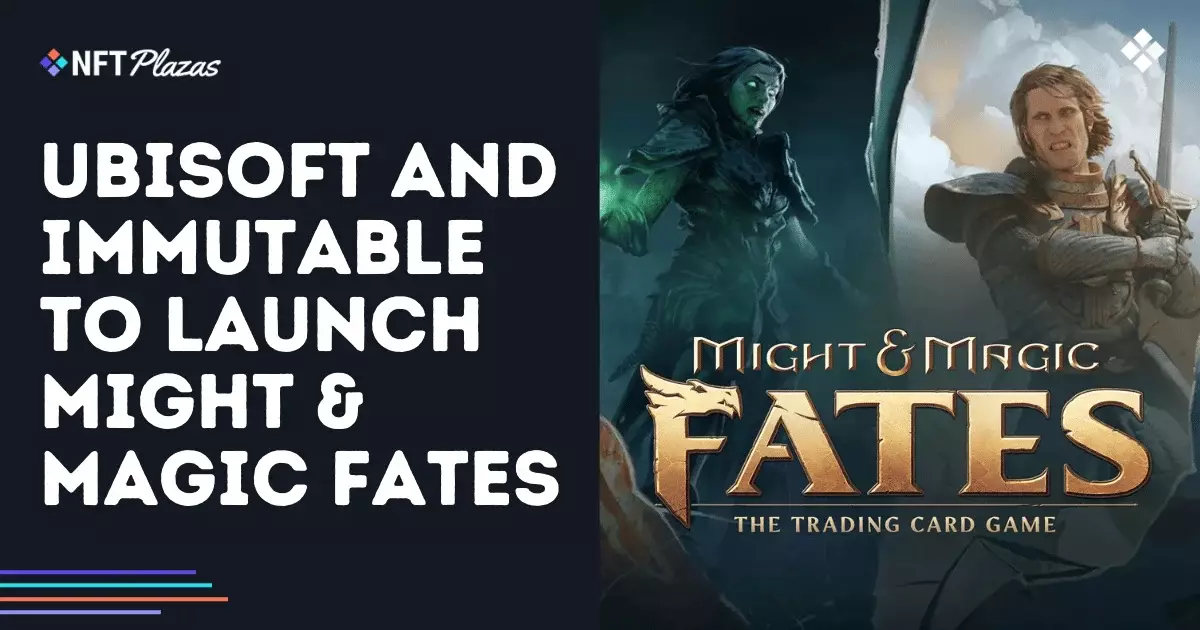The gaming landscape is on the verge of a transformative moment. The recent collaboration between Immutable and Ubisoft to produce *Might & Magic Fates* signals a bold step toward blending traditional gaming with the growing realm of NFTs. This partnership is particularly remarkable considering it is hailed as Immutable’s most significant undertaking to date. By tapping into Ubisoft’s expansive network of 138 million players, *Fates* is not just a game; it’s an ambitious initiative aimed at reshaping the perception and adoption of blockchain technology in mainstream gaming.
Harnessing Legacy with Innovation
Few franchises can boast a legacy like the *Might & Magic* series, which has captivated gamers since the 1980s. This new title aims not only to honor its rich history, featuring beloved factions, creatures, and characters, but also to revitalize it with modern gameplay mechanics. Players will be drawn into a deck-building experience that combines competitive card play with the nostalgia of an established franchise. This union of past and future may well resonate with older gamers seeking familiarity while attracting new audiences drawn by the allure of blockchain features.
Free-to-Play Model: An Opportunity or a Trap?
While *Might & Magic Fates* follows a free-to-play model, it introduces optional web3 features that could either create opportunities or pitfalls. While Ferguson assures that players can enjoy the game without engaging with blockchain elements, the existence of these features raises questions about equity and game balance. How will players who embrace the NFT aspects fare against those who opt out? This dichotomy could potentially foster a two-tiered system, thus undermining the very competitive balance the game seeks to establish.
The Allure of Blockchain Integration
On the surface, the blockchain elements appear to offer players a new frontier for interaction, particularly through card trading on the Immutable blockchain. However, this innovation also invites skepticism. The idea of “ownership” in a digital realm is appealing but still raises ethical concerns regarding the commodification of gaming experiences. The challenge ahead lies in ensuring that these blockchain features enhance the gaming experience without overshadowing the core fundamentals that make it enjoyable. Will the allure of owning unique digital cards be enough to entice traditional gamers, or will it drive them away?
Future Prospects: More Than Just a Game
Robbie Ferguson’s ambition—to engage over one billion players in Immutable’s ecosystem—might sound overly optimistic, but it presents a vision for the future of NFT gaming. If *Might & Magic Fates* succeeds in its execution, this could set a precedent for how traditional gaming companies interact with blockchain technology. The implications extend beyond just *Fates* and could catalyze an entire genre of games rethinking player interaction, ownership, and community engagement.
The developments ahead are sure to challenge and potentially reshape expectations in the gaming world. However, as we stand on this precipice of innovation, only time will reveal whether *Fates* will soar to new heights or fall victim to the pitfalls that have confronted many NFT initiatives before it.
















Leave a Reply